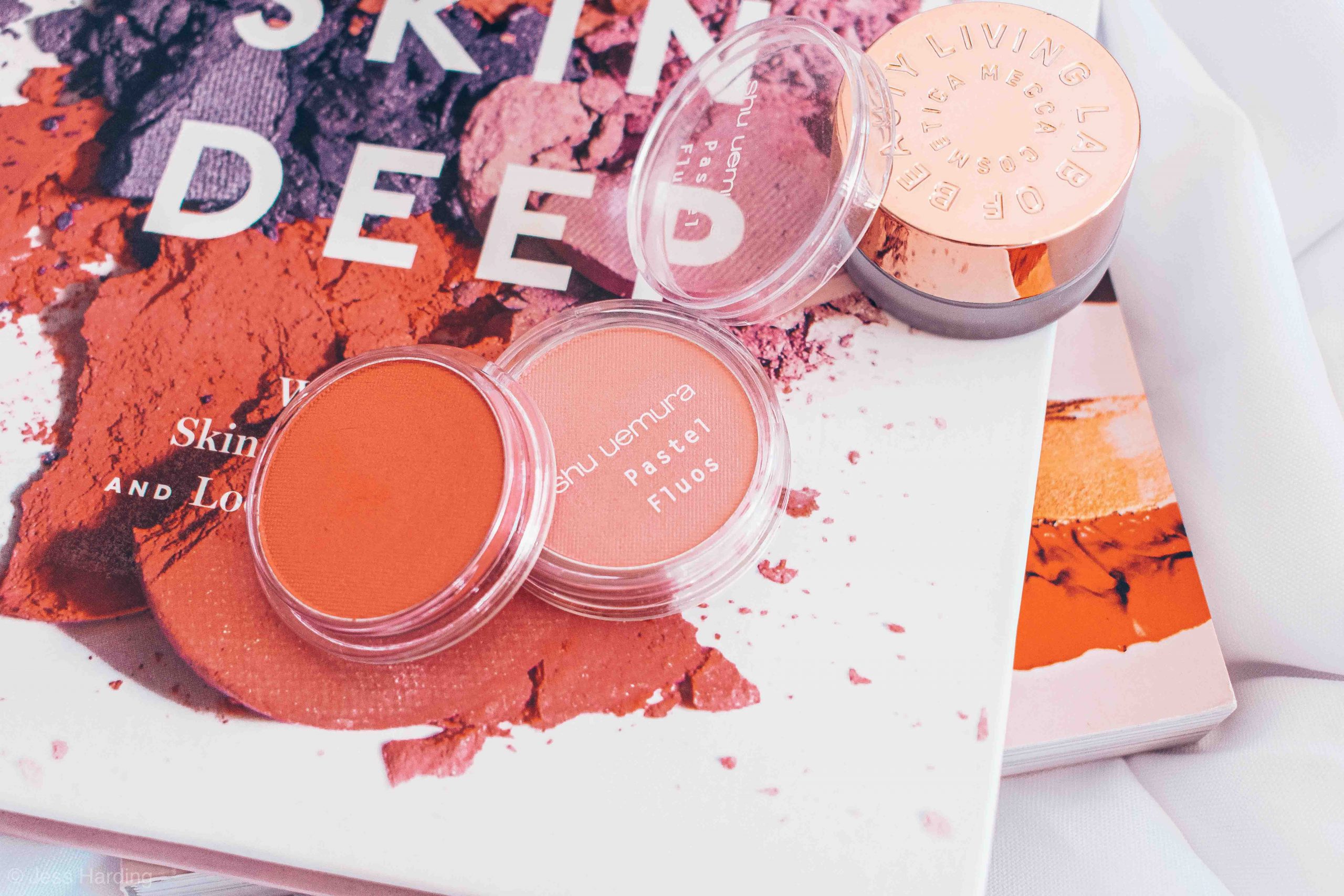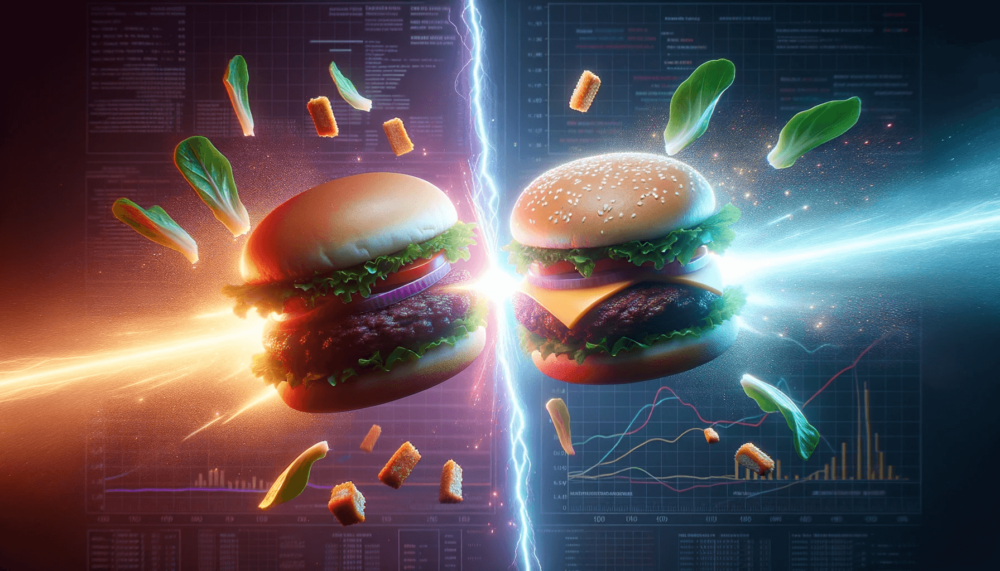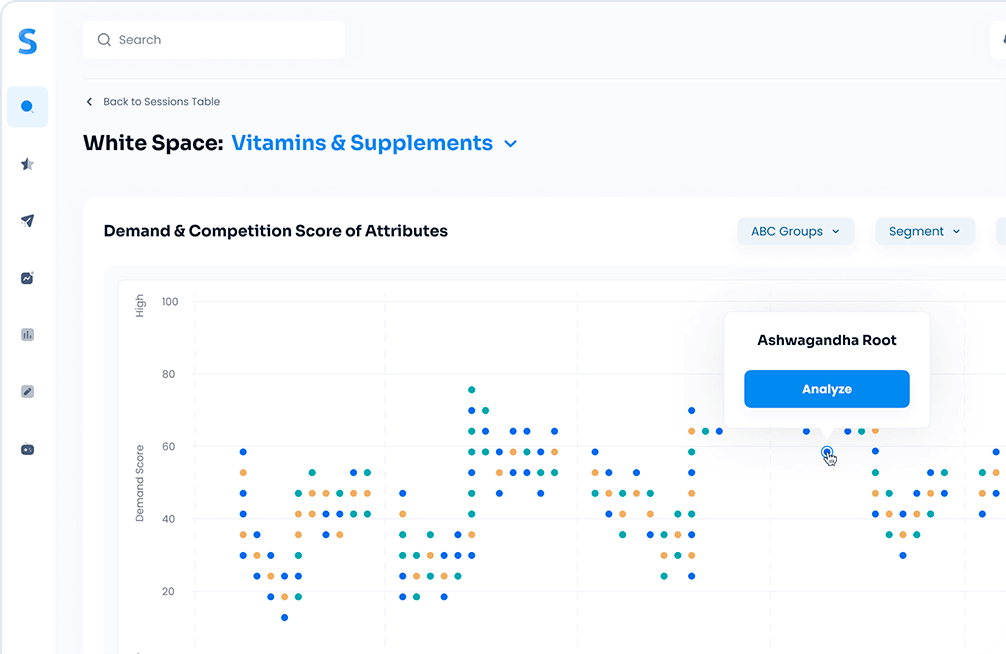Consumer demand is a critical component for any trend analysis, so let’s dig into consumer need states. First, let’s clarify what a “Need State” is. Need states are cosmetics needs consumers claim to have, like dry skin or acne. Consumers will be looking for skincare and makeup products to address these specific needs.
Using our White Space AI tool, the team here at Simporter analyzed 107 need states to predict 2023 luxury cosmetics needs. Our software analyzes social media mentions, consumer sentiment patterns, and search traffic to make highly accurate trend predictions. Data insights like these have proven useful to any business looking to get ahead of the curve.
Which Need States will Struggle?
The graphic below breaks down the 8 themes we believe possess the lowest potential for growth in 2022. Need state opportunity scores are determined by looking at both share of voice (a leading indicator of market share), as well as year-over-year growth rate.
Let’s jump right in.
Hypoallergenic
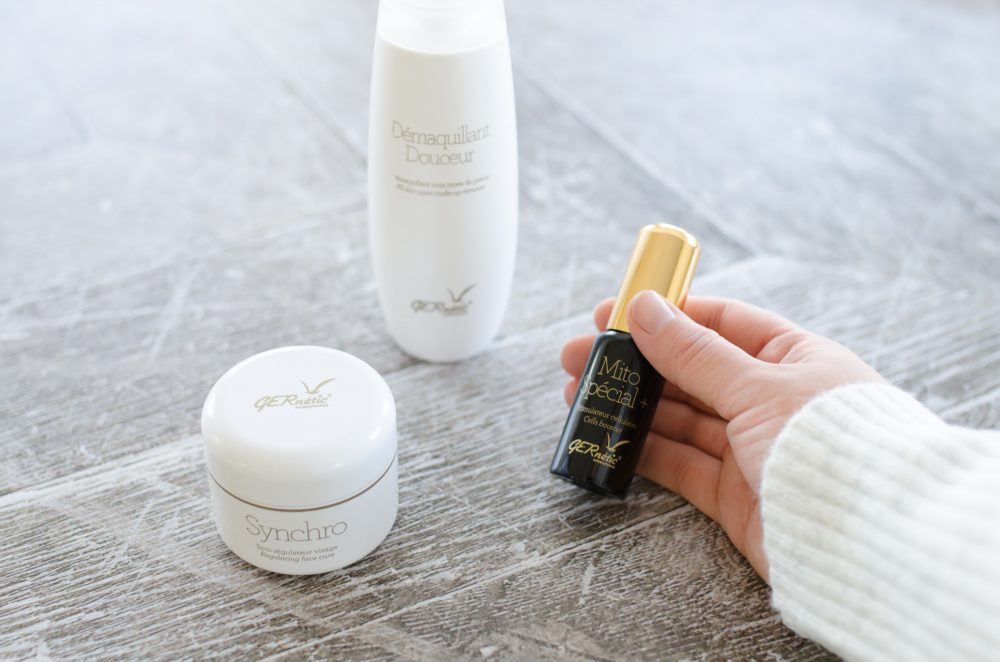
Hypoallergenic takes our top spot for negative growth potential in 2023. Predicted to see a 90.69 negative growth rate, Hypoallergenic won’t sit at the center of consumer conversations in the same way it has the past few years, ranking lowest on our list with only 0.12% share of voice.
Let’s pull back the curtain and talk about what Hypoallergenic really means. According to the FDA, products that are Hypoallergenic “claim to produce fewer reactions than other cosmetics products”. If you feel that definition doesn’t really mean anything, you’re not alone.
Consumers won’t buy it, both literally and metaphorically. While Hypoallergenic sounds great, products labeled as this (e.g. this eye cream sold at Sephora) can mislead consumers into believing they’re gentler on the skin than non-hypoallergenic products. Consumers will no longer have time to entertain potentially misleading claims and labels.
Skincare Routine

Routine skincare will see a decline of 55.45 percent in 2022 despite its 1.42 percent share of voice. Consumers will be getting back to normal pre-pandemic routines, commuting to work, going to school, traveling, and spending more of their time out of the house. So, they won’t have as much time to invest in self-care and daily skincare routines.
The research we covered in our blog on 2023 Luxury Cosmetics Trends: Need States Winners highlighted that one of the top 8 trending need states was the idea of Convenience, so it’s no major surprise to us that multi-step, multi-product routines are going to take a backseat heading into next year.
Daily Use
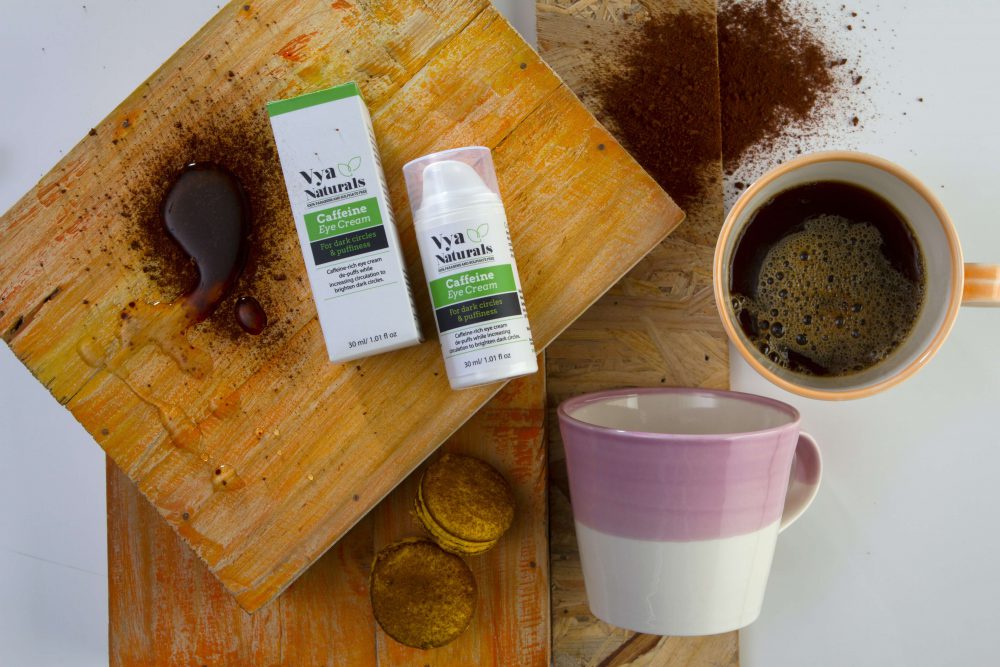
Right in line with Skincare Routines, our team predicts Daily Use will experience a 31.71 decline. With a massive 4.75 percent market share, this industry giant will struggle to compete as it did at the height of the COVID-19 pandemic. Again, the focus is being shifted onto products featuring value in the form of Convenience.
Consumers will prefer products that help them reduce the time and effort in their daily beauty routines over ones that require daily thought and reapplication. They’ll be looking for lower maintenance items that help them accomplish more with fewer uses and in general, less time and effort.
Sweat Control
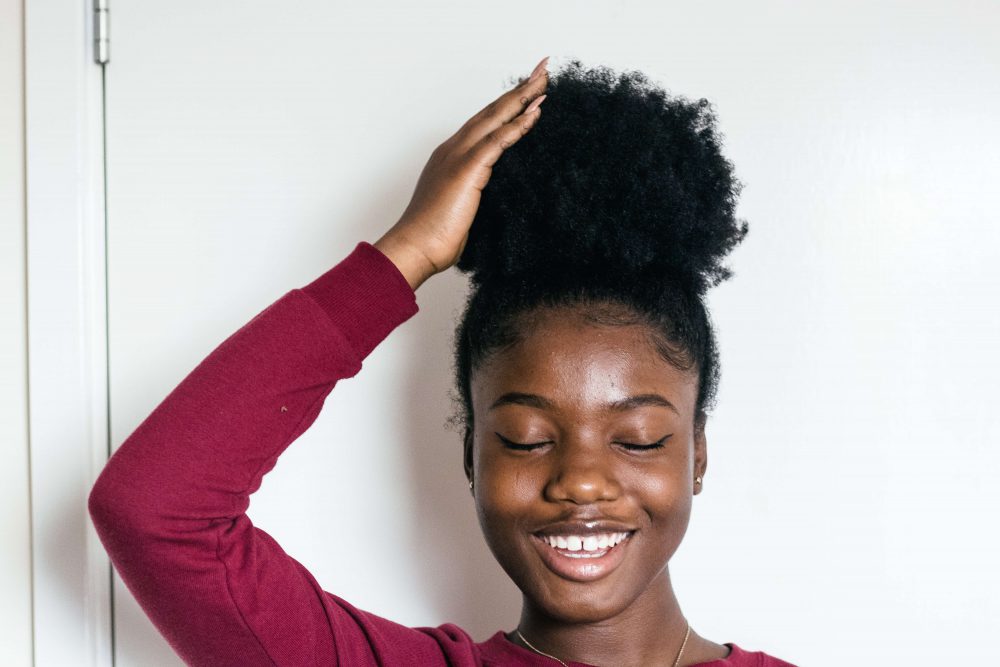
As the holidays approach and temperatures drop, consumers won’t be focusing on products that address Sweat Control like this BeautyCounter Matte Effect Cream that “mattifies, hydrates and balances oils in the skin.” Instead, we expect they’ll be focused on products with more relevant benefits for colder weather, such as Intensive Moisture.
Compared to some of the other topics and Needs states that we’ve covered in this blog, this particular category decline tends to happen more cyclically. Winter always leaves a significant impact on products that fall under the Sweat Control category and we anticipate that 2023 will be no different.
Puffiness
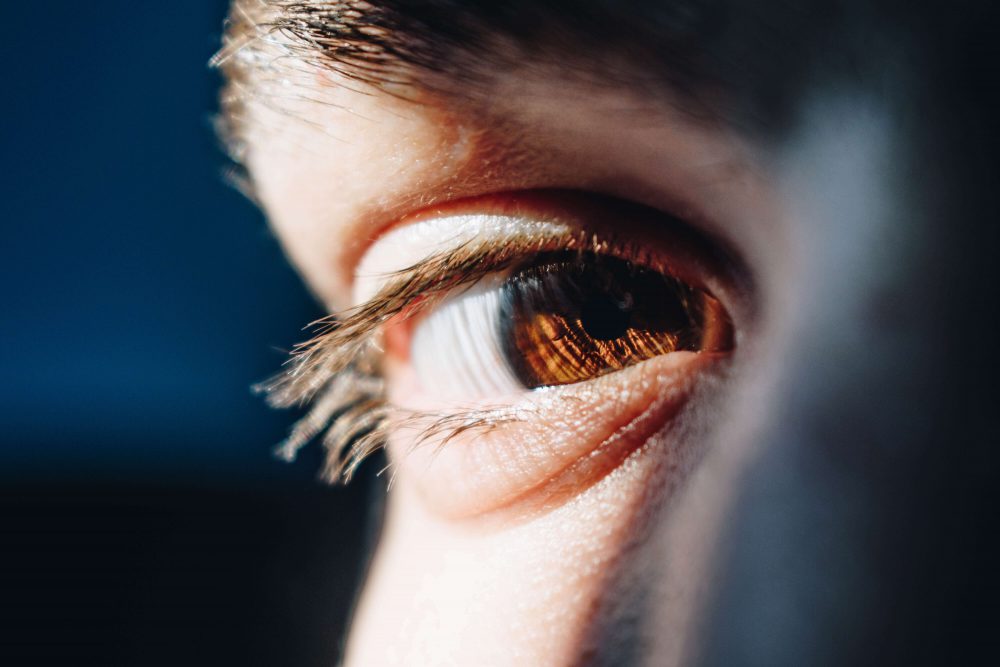
Let’s be real, we’ve all experienced bags under our eyes at some point. While annoying, mild under-eye puffiness is common and gets even more common as you age. However, our White Space AI tool predicts consumer demand for Puffiness will decline 78.13 percent in 2022 as younger consumers will simply be focused on different skincare needs, like breakouts.
Puffiness solutions like this Firming and De-Puffing Eye Cream from fresh will have a hard time competing with all-in-one or multipurpose products that address a variety of needs. Consumers will be consolidating their daily routines and opting for general skincare solutions over niche anti-puffiness products. Put simply, younger consumers don’t experience undereye puffiness in the same way older generations do, and therefore aren’t spending their money on products in this category.
In general, we predict eye-related products will have a tough road ahead in 2023. Check out our blog for more on our thoughts regarding other Declining Categories in Luxury Cosmetics.
Anti-Aging

We’re not surprised to see Anti-Aging on the negative growth list as the market shifts to younger consumers who are interested in other needs. Our team predicts this theme will experience a 42.27 percent decline, even with its considerable share of voice (1.08 percent).
Gen Z will hold a significant share of the buying power in 2023. So, we predict that anything geared towards consumers who see greater perceived value in Anti-Aging benefits (such as this Orchidee Imperiale Black Anti-Aging Cream from Neiman Marcus) will struggle while products focused on younger buyers will likely trend upwards.
Eczema
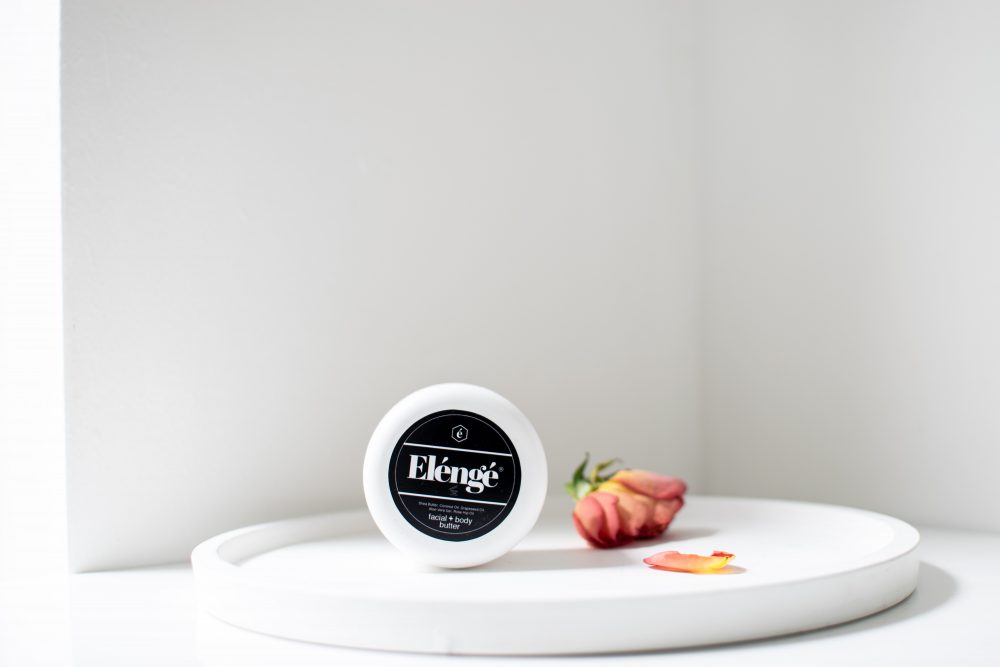
Eczema is a skin condition that causes itchy and red skin, requiring regular moisturizing and anti-itch topical treatments. Despite this common skincare need holding a 1.16 percent share of voice, our team predicts a 32.14 percent negative growth outlook.
Products like this Eczema Body Cream from Skinfix are a great solution for relieving itching and irritation caused by Eczema, but consumers simply won’t be searching for them as often. Instead, consumers may opt for intensive moisturizing solutions like this one from Perricone MD that can help treat Eczema and other general skincare needs. The market continues to demonstrate that all-in-one treatments are on the rise.
Waterproof

Waterproof products like this mascara from Chanel are specially formulated to stay put when exposed to water. They contain adhesive materials that help them stick to the skin and typically are best removed with oil-based makeup removers.
We’re not surprised by Waterproof’s 2022 performance. We predicted that Makeup Remover will sit towards the top of our Subcategories Loser’s list, so it makes sense that as consumers purchase less makeup remover, they’ll toss higher maintenance waterproof products to the side.
Shifting Momentum for 2022
A number of trending need states from the pandemic-fueled past two years will see negative growth in 2023. While many of these consumer needs are certainly not going away any time soon, they will have a hard time dominating consumer conversations. Products for Routine and Daily Use will decline as consumers spend less time investing in self-care and more time commuting to work, at social gatherings, traveling, and doing other activities.
Brands that take notice of these declining categories and orient their 2023 marketing, social, and PR strategies accordingly will get ahead of the curve and have a successful year. Those that continue to push one-note products that treat specific conditions or need constant reapplication will see their share of voice decline.
For more insights on luxury cosmetics trends, check out our recent webinar here. If you’re ready to see Simporter AI in action and learn what it can do for you, request a demo on our website.
